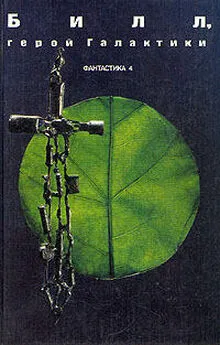Анетт Асп - Круто! Как подсознательное стремление выделиться правит экономикой и формирует облик нашего мира
- Название:Круто! Как подсознательное стремление выделиться правит экономикой и формирует облик нашего мира
- Автор:
- Жанр:
- Издательство:Альпина Паблишер
- Год:2016
- Город:Москва
- ISBN:978-5-9614-4152-9
- Рейтинг:
- Избранное:Добавить в избранное
-
Отзывы:
-
Ваша оценка:
Анетт Асп - Круто! Как подсознательное стремление выделиться правит экономикой и формирует облик нашего мира краткое содержание
Авторы этой книги провели глобальное исследование, обобщили новейшие данные в области нейронауки, экономики, эволюционной биологии и выяснили, почему мы просто обречены покупать и почему стремимся выглядеть лучше остальных. По мнению авторов, невозможно остаться за пределами этого мира товаров, символов и сигналов. Даже те, кто называет себя «антипотребителями», в конечном итоге оказываются просто альтернативными потребителями.
Что происходит у нас в голове, когда мы оказываемся в магазине? Какие три силы борются в нас при выборе того или иного товара? Как «крутое» потребление стало главной движущей силой экономики и как оно влияет на мир? Об этом рассказывают профессор философии и когнитивной науки Стивен Кварц и политолог, специалист в области PR Анетт Асп.
Круто! Как подсознательное стремление выделиться правит экономикой и формирует облик нашего мира - читать онлайн бесплатно ознакомительный отрывок
Интервал:
Закладка:
98
Baumeister, 2001, “Bad is stronger than good.”
99
Berthoz, S., et al. 2002. “An fMRI study of intentional and unintentional (embarrassing) violations of social norms.” Brain 125:1696–708.
100
Preuschoff, Quartz, and Bossaerts, 2008. “Human insula activation.”
101
Henrich, Joseph, Robert Boyd, Samuel Bowles, Colin Camerer, Ernst Fehr, Herbert Gintis, Richard McElreath, Michael Alvard, Abigail Barr, Jean Ensminger, Natalie Smith Henrich, Kim Hill, Francisco Gil-White, Michael Gurven, Frank W. Marlowe, John Q. Patton, and David Tracer. 2005. “Economic man” in cross-cultural perspective: Behavioral experiments in 15 small-scale societies.” Behavioral and Brain Sciences 28:795–815.
102
Montague, P. Read, and Terry Lohrenz. 2007. “To detect and correct: Norm violations and their enforcement.” Neuron 56:14–8.
103
Исследование этих систем в первую очередь связано с именем Джеффри Грея. См.: Gray, J. A. 1970. “The psychophysiological basis of introversion-extraversion.” Behaviour Research & Therapy , 8:249–66; and Gray, J. A. 1990. “Brain systems that mediate both emotion and cognition.” Cognition and Emotion 4:269–88.
104
Simon, Joe J., et al. 2010. “Neural reward processing is modulated by approach and avoidance-related personality traits.” NeuroImage 49:1868–74.
105
Canli, Turhan. 2004. “Functional brain mapping of extraversion and neuroticism: Learning from individual differences in emotion processing.” Journal of Personality 72:1105–32.
106
Claes, Laurence, et al. 2010. “Emotional reactivity and self-regulation in relation to compulsive buying.” Personality and Individual Differences 49:526–30.
107
Blair, Karina S., et al. 2010. “Social norm processing in adult social phobia: Atypically increased ventromedial frontal cortex responsiveness to unintentional (embarrassing) transgressions.” American Journal of Psychiatry 167: 1526–32.
108
История о джемпере, благотворительности и опросе в магазине взята из Nelissen, Rob M. A., and Marijn H. C. Meijers. 2011. “Social benefits of luxury brands as costly signals of wealth and status.” Evolution and Human Behavior 32:343–55.
109
Bourdieu, Pierre. 1984. Distinction: A Social Critique of the Judgement of Taste . Cambridge, MA: Harvard University Press.
110
Sivanathan, Niro, and Nathan C. Pettit. 2010. “Protecting the self through consumption: Status goods as affirmational commodities.” Journal of Experimental Social Psychology 46:564–70.
111
Rindfl eisch, Aric, James E. Burroughs, and Nancy Wong. 2009. “The safety of objects: Materialism, existential insecurity, and brand connection.” Journal of Consumer Research 36:1–16.
112
Solomon, Sheldon, Jeffrey L. Greenberg, and Thomas A. Pyszczynski. 2004. “Lethal consumption: Death-denying materialism.” In T. Kasser and A. D. Kanner, eds. Psychology and Consumer Culture: The Struggle for a Good Life in a Materialistic World . Washington, DC: American Psychological Association, 127–46.
113
Сумма при условии наличия двадцати долларов. Обзор этого эксперимента см. в: Engel, Christoph. 2011. “Dictator games: A meta study.” Experimental Economics 14:583–610.
114
Gneezy, Uri, Ernan Haruvy, and Hadas Yafe. 2004. “The inefficiency of splitting the bill.” The Economic Journal 114:265–80.
115
Daly, M., M. Wilson, C. A. Salmon, M. Hiraiwa-Hasegawa, and T. Hasegawa. 2001. “Siblicide and seniority.” Homicide Studies 5:30–45.
116
Zerjal, Tatiana, et al. 2003. “The genetic legacy of the Mongols.” American Journal of Human Genetics 72:717–21.
117
Многие думают, что теория родственного отбора заключается в том, что степень нашего альтруизма пропорциональна родству (то есть количеству общих генов), однако на самом деле в ней говорится об особом гене или генах, ответственных за альтруизм. См.: Frank, S. A. 2013. “Natural selection. VII. History and interpretation of kin selection theory.” Journal of Evolutionary Biology 26:1151–84.
118
Seyfarth, Robert M., and Dorothy L. Cheney. 2012. “The evolutionary origins of friendship.” Annual Review of Psychology 63:153–77.
119
Silk, Joan B. 2003. “Cooperation without counting: The puzzle of friendship.” In P. Hammerstein, ed. Genetic and Cultural Evolution of Cooperation . Dahlem Workshop Reports. Cambridge, MA: MIT Press, pp. 37–54.
120
Nesse, Randolph. 2007. “Runaway social selection for displays of partner value and altruism.” Biological Theory 2:143–55.
121
См., например: Miller, Geoffrey F. 2007. “Sexual selection for moral virtues.” The Quarterly Review of Biology 82:97–125.
122
Kuhlmeier, Valerie, Karen Wynn, and Paul Bloom. 2003. “Attribution of dispositional states by 12-month-olds.” Psychological Science 14:402–408.
123
Barclay, Pat, and Robb Willer. 2007. “Partner choice creates competitive altruism in humans.” Proceedings of the Royal Society B: Biological Sciences 274:749–53.
124
Теория сигналов объединяет две перспективы: экономическую и биологическую. Главное различие между ними заключается в том, что в экономике сигналы принято считать сознательным элементом стратегических взаимодействий (например, когда работодатель рассматривает диплом Лиги плюща по гуманитарным наукам как сигнал о том, что его обладатель будет хорошим сотрудником, в отличие от кандидата со специфическими навыками, о которых может сигнализировать степень MBA). В этом случае сигнальное качество диплома сознательно признается как работодателем, так и соискателем, который, согласно экономическим взглядам, стремился получить этот диплом отчасти из-за осознания его сигнальной функции на рынке труда. См. Spence: A. M. (1976). “Competition in salaries, credentials, and signaling prerequisites for jobs.” The Quarterly Journal of Economics 90:51–74.
125
Cottrell, Catherine A., Steven L. Neuberg, and Norman P. Li. 2007. “What do people desire in others? A sociofunctional perspective on the importance of different valued characteristics.” Journal of Personality and Social Psychology 92:208–31.
126
Leary, Mark R. 2007. “Motivational and emotional aspects of the self.” Annual Review of Psychology 58:317–44.
127
Wilson, Rick K., and Catherine C. Eckel. 2006. “Judging a book by its cover: Beauty and expectations in the trust game.” Political Research Quarterly 59:189–202.
128
DeBruine, Lisa M. 2002. “Facial resemblance enhances trust.” Proceedings of the Royal Society B: Biological Sciences 269:1307–12.
129
Stirrat, M., and D. I. Perrett. 2010. “Valid facial cues to cooperation and trust: Male facial width and trustworthiness.” Psychological Science 21:349–54.
130
Carre, Justin M., and Cheryl M. McCormick. 2008. “In your face: Facial metrics predict aggressive behaviour in the laboratory and in varsity and professional hockey players.” Proceedings of the Royal Society B: Biological Sciences 275: 2651–56.
131
Carre, Justin M., Cheryl M. McCormick, and Catherine J. Mondloch. 2009. “Facial structure is a reliable cue of aggressive behavior.” Psychological Science 20:1194–98.
132
Обзор см. в: Mende-Siedlecki, Peter, Christopher P. Said, and Alexander Todorov. 2013. “The social evaluation of faces: A meta-analysis of functional neuroimaging studies.” Social Cognitive and Affective Neuroscience 8:285–99.
133
Engell, Andrew D., James V. Haxby, and Alexander Todorov. 2007. “Implicit trustworthiness decisions: Automatic coding of face properties in the human amygdala.” Journal of Cognitive Neuroscience 19:1508–19.
134
Duarte, J., S. Siegel, and L. Young. 2012. “Trust and credit: The role of appearance in peer-to-peer lending.” Review of Financial Studies 25:2455–84.
135
“Cone-ing Is the New Planking!!!!!” www.youtube.com/watch?v=WygNjMSllLQ.
136
“Cone-ing Same McDonalds 3 Times in a Row.” www.youtube.com/watch?v=_JLnjq4uoJ0.
137
Bicchieri, C. 2005. The Grammar of Society: The Nature and Dynamics of Social Norms . Cambridge, UK: Cambridge University Press.
138
Posner, Eric A. 2000. Law and Social Norms. Cambridge, MA: Harvard University Press.
139
Cottrell, Catherine A., Steven L. Neuberg, and Norman P. Li. 2007. “What do people desire in others? A sociofunctional perspective on the importance of different valued characteristics.” Journal of Personality and Social Psychology 92:208–31.
140
D’Errico, Francesco, et al. 2009. “Additional evidence on the use of personal ornaments in the Middle Paleolithic of North Africa.” Proceedings of the National Academy of Sciences 106:16051–56.
141
Charles, Kerwin Kofi, Erik Hurst, and Nikolai Roussanov. 2009. “Conspicuous Consumption and Race.” The Quarterly Journal of Economics 124:425–67.
142
Anderson, Cameron, Robb Willer, Gavin J. Kilduff, and Courtney E. Brown. 2012. “The origins of deference: When do people prefer lower status?” Journal of Personality and Social Psychology 102:1077–88.
143
Simpson, B. 2006. “Social identity and cooperation in social dilemmas.” Rationality and Society 18:443–70; Van Bavel, Jay J., Dominic J. Packer, and William A. Cunningham. 2008. “The neural substrates of in-group bias: A functional magnetic resonance imaging investigation.” Psychological Science 19:1131–39.
Читать дальшеИнтервал:
Закладка:










